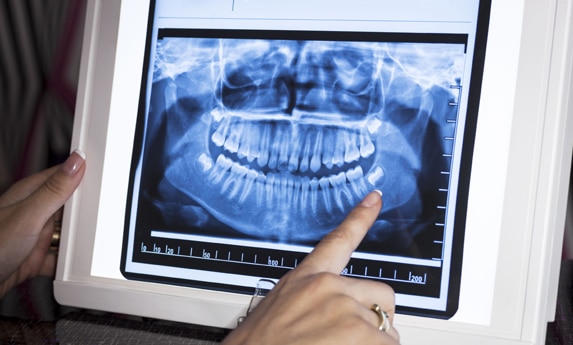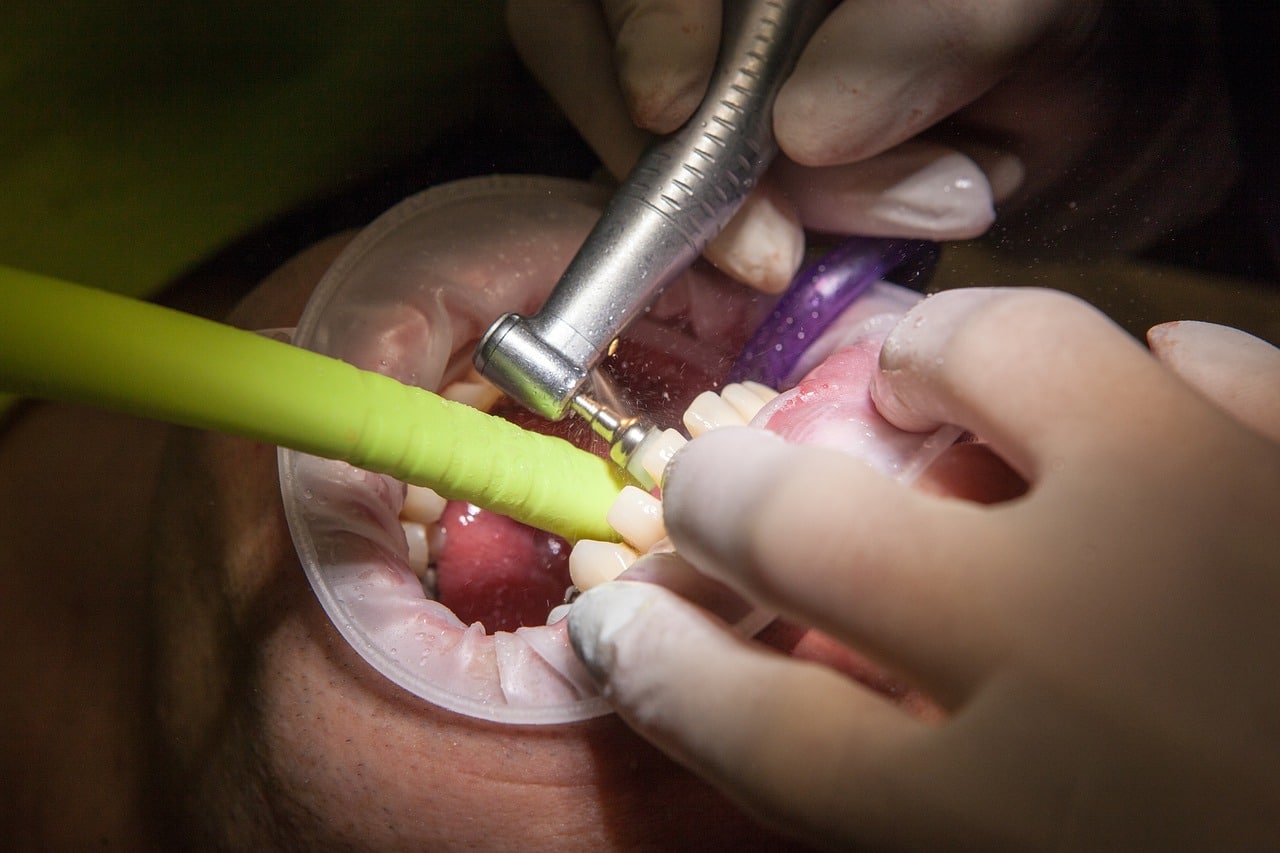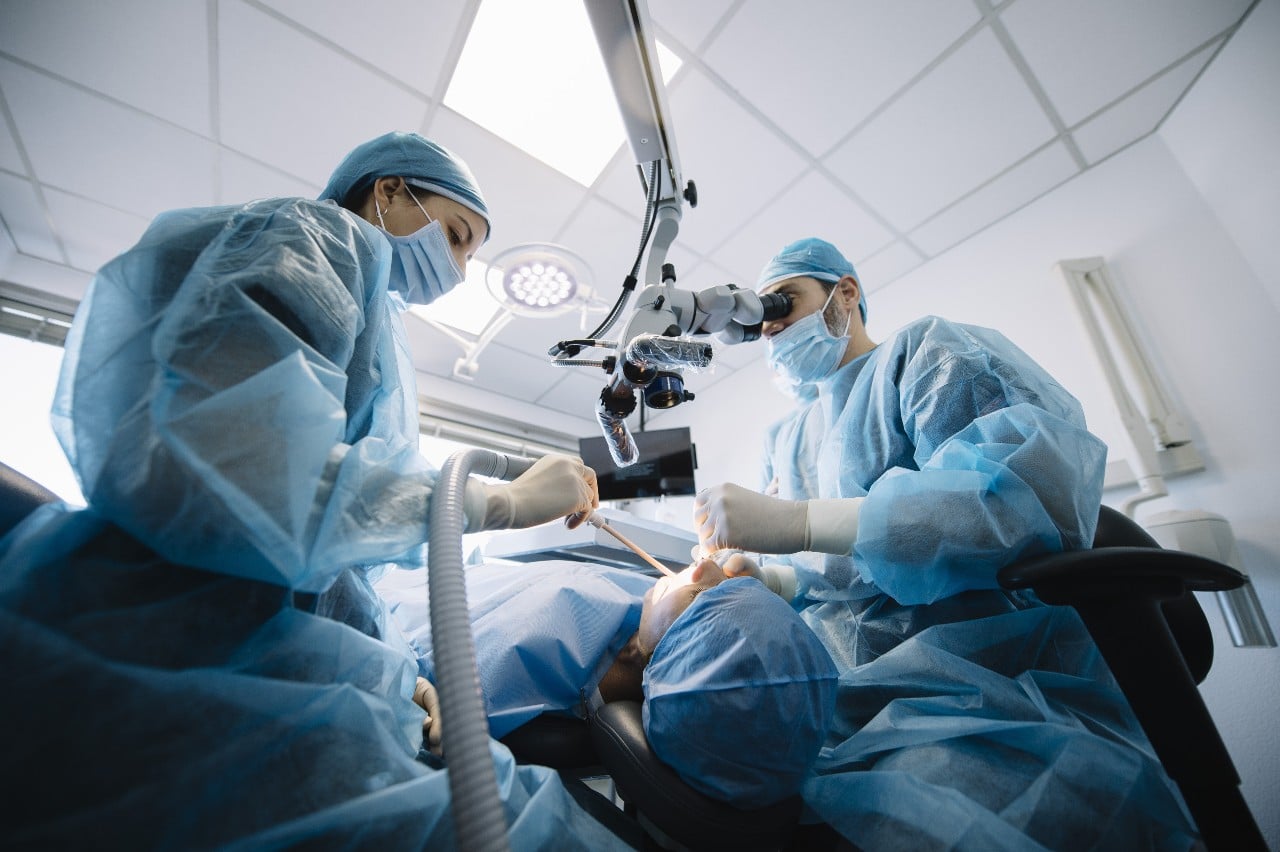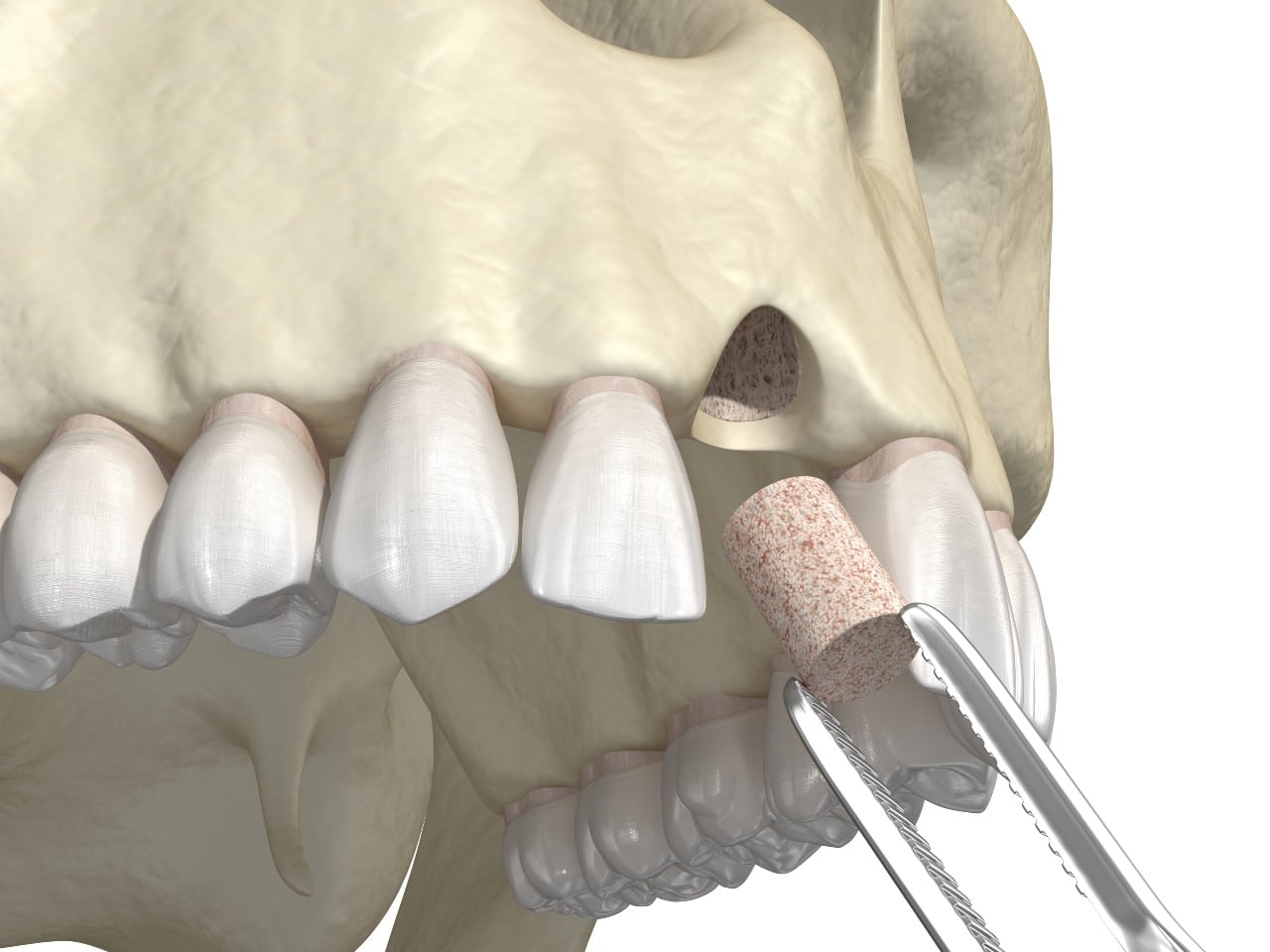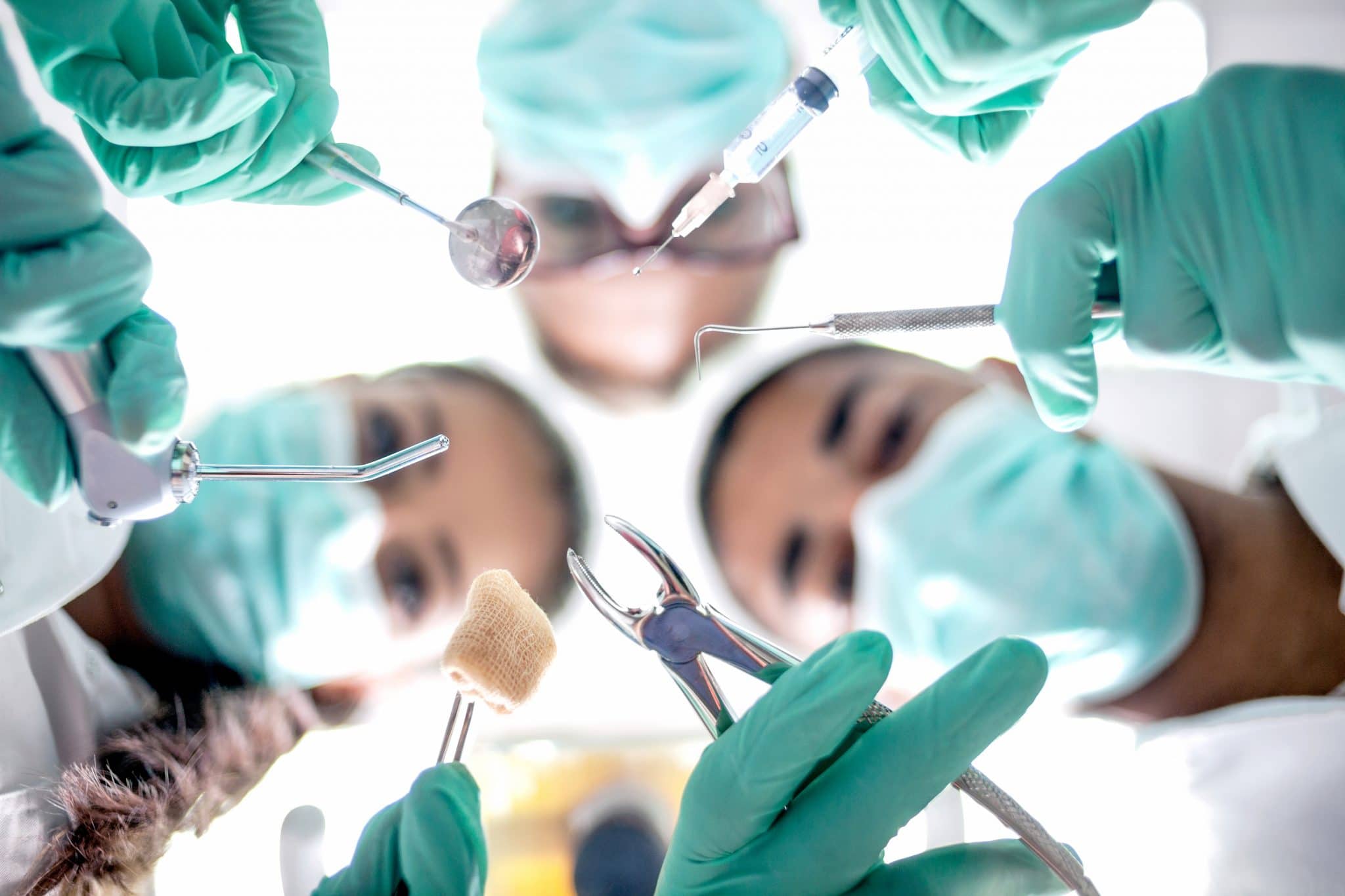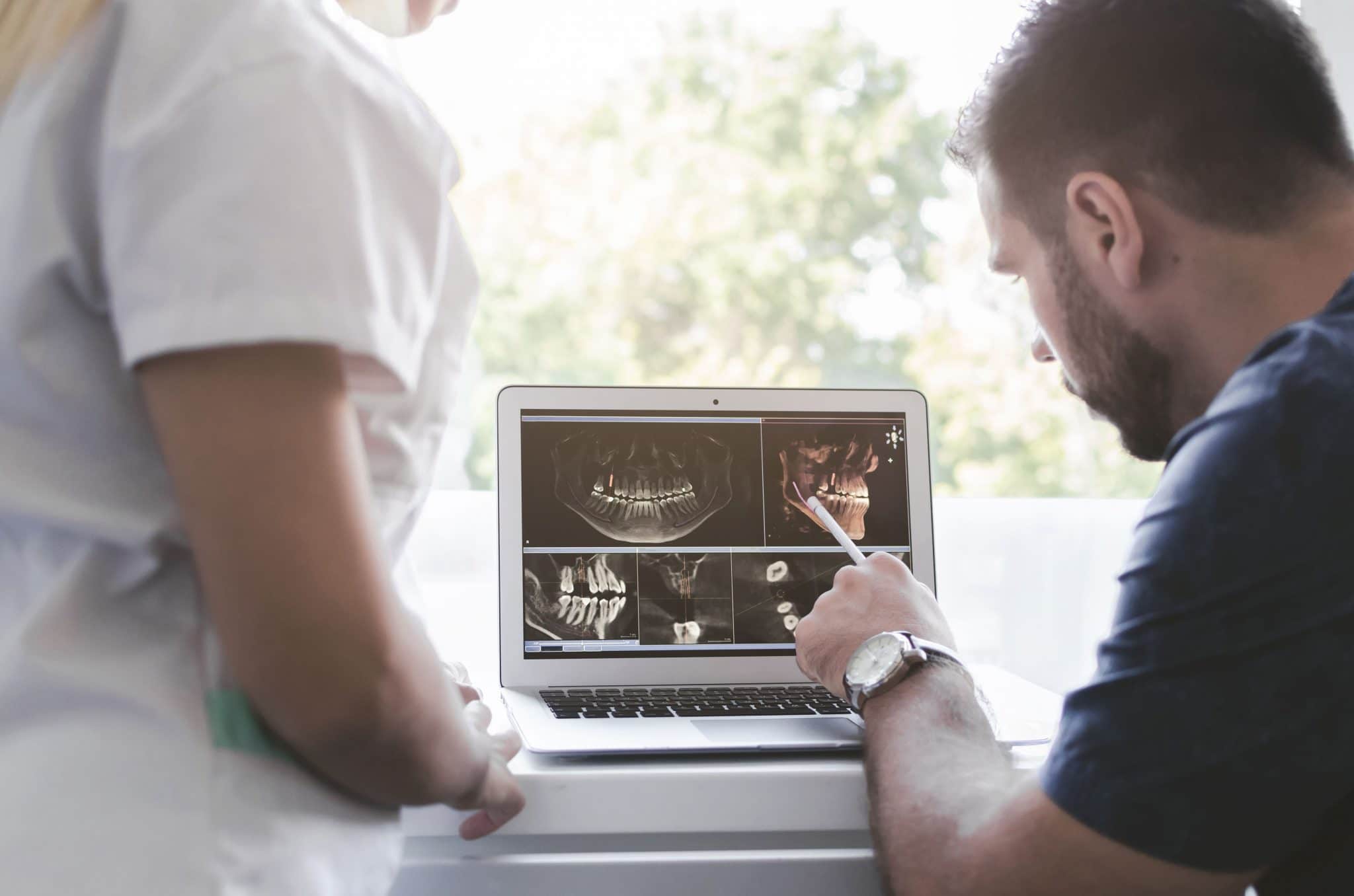Removing impacted wisdom teeth is a little more involved compared to a simple tooth extraction for an erupted tooth. Taking care of yourself after surgery is very important. Our team at North Texas Oral & Facial Surgery will discuss how to care for your mouth at home after your wisdom tooth removal, and give you post-operative care tips to keep you feeling great.
What To Expect After My Wisdom Tooth Removal?
Bleeding and Swelling
Many wonder why they feel nauseous after their wisdom tooth removal surgery, and do not know what to expect. After your surgery you may experience some bleeding or oozing and this is very common. We recommend you rinse gently or wipe the blood away. You can use gauze pads provided to help stop the bleeding. You may also experience some swelling around the cheeks or area where the teeth were removed. Ice can be used to help minimize swelling, and should subside after a few days.
Pain and Diet
After your wisdom tooth removal procedure, you may experience some pain. Patients may be prescribed pain medication or antibiotics after their surgery, or we may recommend over the counter pain medication. The pain should subside after a few days, but if you have any persistent pain that does not go away, we recommend calling our office right away.
Following a soft food diet is recommended after wisdom tooth removal while your mouth is healing. Patients should avoid straws and any sucking motions during recovery. Patients should eat balanced meals and stay hydrated.
Nausea and Vomiting
Nausea and vomiting are common after wisdom tooth removal. In some cases, patients feel nauseous after anesthesia. To help your nausea you can sip coke or ginger ale to help the feeling subside. Typically, nausea should go away after 4-6 hours. If your nausea does not go away, we recommend calling our office. In some cases, patients can feel nauseous 2-4 days after their surgery. This is due to pain medication, or can be caused by dehydration.
What Are Other Complications?
Most patients recover easily, but if you experience any fever or feel dizzy, we encourage you to contact our office right away. Patients may feel stiff after their procedure or have a sore throat. This should also subside, but if these symptoms do not go away, we recommend contacting our office.
Taking Care of your teeth after surgery is important. Patients should still brush and floss gently after having their wisdom teeth removed. If you experience any prolonged pain, this should be addressed right away, and we recommend calling our office.
Interested in Finding Out More?
If you are interested in finding out more about wisdom tooth removal and the recovery process, contact North Texas Oral & Facial Surgery. Our highly trained staff is happy to answer any questions or concerns you have, and we welcome you to schedule an appointment. If you think you may need wisdom tooth removal the first step is scheduling a consultation with us. Our doctors will complete a thorough exam, and create a customized treatment plan. Your oral health is our priority, and we always provide the very best care for all of our patients.
To schedule your appointment, contact North Texas Oral & Facial Surgery, and our staff will be happy to assist you.


